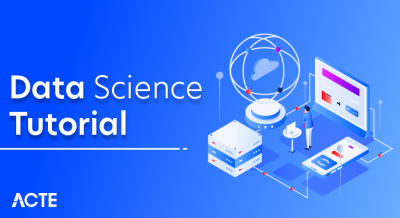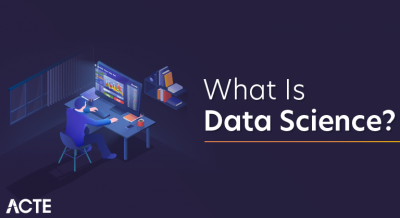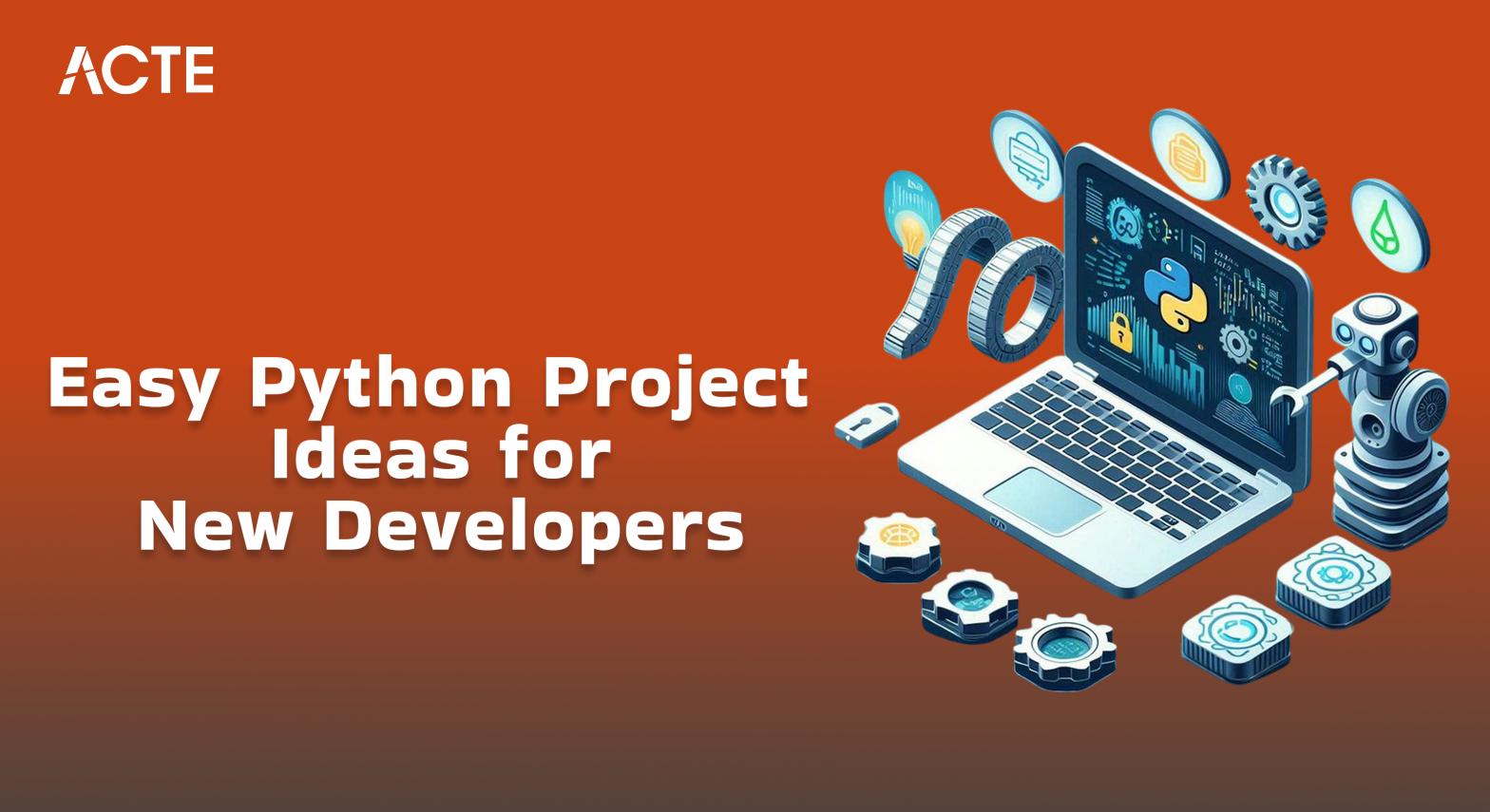
- Introduction to Python Projects
- Importance of Project-Based Learning
- Web Scraping Projects
- Data Analysis Projects
- Machine Learning Projects
- Automation Projects
- Web Development Projects
- GUI Application Projects
- Game Development Projects
- APIs and Integration Projects
- Best Practices for Projects
- Conclusion
Introduction to Python Projects
Python projects are an excellent way to apply theoretical knowledge in real-world scenarios, helping to strengthen programming skills and build a practical portfolio. Python, known for its simplicity and versatility, is widely used in various fields such as web development, data science, automation, artificial intelligence, and machine learning. An introduction to Python projects involves understanding how to translate complex problems into Python code, while practicing core concepts like data structures, control flow, and algorithms. Starting with small projects like a to-do list application or a basic calculator helps beginners get familiar with Python’s syntax and libraries, laying a strong foundation for more advanced topics such as Data Science Training As one progresses, projects can scale to more complex tasks, such as building web applications using frameworks like Django or Flask, analyzing data with libraries like Pandas and NumPy, or creating machine learning models with Scikit-learn and TensorFlow. Working on Python projects allows you to dive deep into practical challenges, such as debugging, optimizing code, and working with APIs or databases. Additionally, contributing to open-source projects or collaborating with others on larger projects can be a great way to enhance your coding skills and gain experience. Ultimately, Python projects offer a hands-on approach to learning and provide a valuable way to showcase your capabilities to potential employers or collaborators.
Would You Like to Know More About Data Science? Sign Up For Our Data Science Course Training Now!
Importance of Project-Based Learning
-
Enhances Practical Knowledge:
- Project-based learning helps students apply theoretical concepts in real-world scenarios, turning abstract knowledge into practical skills. It bridges the gap between learning and application, making learning more meaningful and relevant. Develops Problem-Solving Skills:
- Working on projects often involves tackling challenges and finding solutions, which helps develop critical thinking and problem-solving abilities. Students learn to approach complex issues, break them down, and find innovative solutions. Promotes Collaboration:
- Many projects require teamwork, fostering collaboration and communication skills. By working with others, students learn how to manage group dynamics, share ideas, and work toward common goals, which is essential in the professional world. Builds Time Management and Organizational Skills:
- Projects often have deadlines and require planning, which helps students develop time management and organizational skills. Students learn to prioritize tasks, allocate resources, and manage their time effectively to meet project goals valuable abilities that reinforce why Data Science is a good career choice. Encourages Active Learning:
- Unlike traditional learning, which can be passive, project-based learning is hands-on and active. Students engage with the material by creating, experimenting, and testing their ideas, leading to a deeper understanding of the subject. Boosts Motivation and Engagement:
- Working on projects that are relevant and interesting increases student motivation. When students see the tangible results of their efforts, they are more likely to stay engaged and committed to the learning process. Prepares for Real-World Challenges:
- Projects simulate real-world work environments, allowing students to experience the types of challenges they might face in their careers. This provides a sense of practical experience and a better understanding of what to expect in the professional world. Fosters Creativity and Innovation:
- Project-based learning encourages students to think creatively and innovate. By working on open-ended projects, students are encouraged to explore new ideas, experiment with different approaches, and push the boundaries of what is possible.
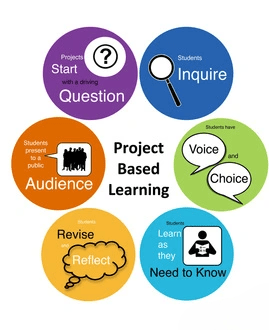
Web Scraping Projects
Web scraping projects offer an exciting opportunity to collect, analyze, and utilize data from various websites, providing valuable insights for data science, business intelligence, and automation tasks. Web scraping involves extracting data from web pages using Python libraries like BeautifulSoup, Scrapy, or Selenium. These projects typically start with the basics, such as scraping simple information from static web pages, such as product prices, headlines, or user reviews. As you progress, you can move on to more complex tasks, like scraping data from dynamic websites or APIs that require interaction or authentication. For example, a web scraping project could involve gathering financial data from stock market websites, collecting job postings from career sites for trend analysis, or extracting real estate listings to monitor property prices over time. More advanced projects may include creating automated systems that scrape data on a regular basis, storing it in databases, and visualizing trends or patterns. Additionally, web scraping projects help develop key skills such as data cleaning, handling web requests, dealing with pagination, and managing large datasets, offering practical exposure that ties into What is What is Data Engineering insights. By working on web scraping projects, you not only improve your Python and data handling skills but also gain hands-on experience in automating data collection, which is valuable in a wide range of data-driven fields.
Data Analysis Projects
-
Sales Data Analysis:
- Analyze sales data to identify trends, patterns, and insights. Use tools like Pandas and Matplotlib to perform exploratory data analysis (EDA), visualize sales over time, and identify top-performing products or regions. Customer Segmentation:
- Segment customers based on purchasing behavior, demographics, or other relevant factors. Use clustering techniques like K-means to group similar customers and tailor marketing strategies to different segments. Stock Market Analysis:
- Perform time-series analysis on stock market data. Analyze historical stock prices, compute moving averages, and use predictive models to forecast future stock trends or detect anomalies in the market. Survey Data Analysis:
- Work with survey data to extract meaningful insights. Analyze responses, calculate satisfaction scores, and visualize trends based on demographics or other factors, providing actionable feedback to businesses. Movie Ratings Analysis:
- Analyze movie ratings and reviews data to determine factors that influence ratings. Perform sentiment analysis on user reviews, identify trends in movie genres, and predict movie success based on past data, all of which can be enhanced by understanding how does TensorFlow works for data processing and prediction modeling. Web Traffic Analysis:
- Analyze website traffic data to understand user behavior. Track metrics like page views, bounce rates, and session duration to optimize website performance and user experience. Healthcare Data Analysis:
- Work with healthcare datasets to analyze patient outcomes, treatment efficacy, or disease patterns. Identify trends in hospital admissions, readmission rates, or the effectiveness of different treatments. E-commerce Product Analysis:
- Analyze product listings and customer feedback in an e-commerce dataset. Identify the most popular products, examine factors that influence customer purchases, and evaluate product reviews to inform inventory decisions.
These data analysis projects help develop essential skills such as data cleaning, data visualization, and statistical analysis, while offering valuable insights for various industries.
Machine Learning Projects
Machine learning projects are a great way to apply theoretical concepts to real-world challenges, enhancing both understanding and technical skills. These projects typically involve using algorithms to analyze data, identify patterns, and make predictions or decisions without explicit programming, often utilizing Top Data Science Tools to streamline the process. Beginner projects might include tasks like classification using decision trees or linear regression for predicting outcomes based on input variables. As you advance, you can tackle more complex tasks like building recommendation systems, working with neural networks, or natural language processing (NLP) for text analysis. For example, a machine learning project could involve predicting house prices based on features like location and size, or classifying images into categories using convolutional neural networks (CNNs). More sophisticated projects may include building a sentiment analysis model to understand customer feedback or creating a fraud detection system using supervised learning techniques. These projects require knowledge of Python, libraries like Scikit-learn, TensorFlow, and Keras, as well as an understanding of data preprocessing, feature engineering, and model evaluation. Through machine learning projects, individuals not only learn how to implement algorithms but also gain insight into model optimization, problem-solving, and dealing with real-world data, making them valuable assets for anyone pursuing a career in data science or artificial intelligence.
Automation Projects
-
Web Scraping Automation:
- Build a web scraping automation tool to extract data from websites regularly. Automate the collection of product prices, stock data, or news articles and save the extracted data into a database or CSV file for analysis. Email Notification System:
- Create an automated email notification system that sends out alerts based on specific triggers, such as stock price changes, incoming customer queries, or task deadlines, improving communication efficiency. Social Media Post Scheduler:
- Develop an automation project to schedule and post content on social media platforms like Twitter or Instagram. Integrate APIs to automate posts, track engagement metrics, and schedule posts at optimal times. File Organization Automation:
- Build a script to automatically organize files on your computer. This project can automatically sort files based on type, date, or project, and move them to respective folders, saving time on manual organization skills that can be enhanced with SQL for Data Science basics for managing and querying structured data. Data Backup Automation:
- Automate the process of backing up important files or databases at regular intervals. This ensures data security and minimizes the risk of losing critical information. Automated Report Generation:
- Create a project to automate the generation of periodic reports from datasets. The automation tool can pull data from multiple sources, perform necessary calculations, and generate reports in formats like PDF or Excel. Task Reminder Automation:
- Build a task reminder system that sends automated notifications for upcoming tasks or appointments, integrating with a calendar or task management tool to ensure timely reminders. Data Entry Automation:
- Automate repetitive data entry tasks by creating scripts that extract information from emails, forms, or documents, and input them into structured databases or spreadsheets without manual intervention.
These automation projects can help improve efficiency, reduce human error, and free up valuable time for more strategic tasks.
Want to Pursue a Data Science Master’s Degree? Enroll For Data Science Masters Course Today!
Web Development Projects
Web development projects provide hands-on experience in creating websites and web applications, making them an essential part of learning full-stack development. These projects can range from simple static websites to complex dynamic web applications, and can be further enriched by incorporating skills gained through Data Science Training Beginners can start with projects like a personal portfolio website, which helps practice basic HTML, CSS, and JavaScript for creating responsive designs. As you progress, you can tackle more advanced projects such as building a blog platform where users can create, edit, and delete posts, requiring server-side programming with technologies like Node.js, Django, or Flask. E-commerce websites are another common web development project, where you can implement features like product listings, shopping carts, and payment integration, requiring both front-end and back-end development skills. You could also work on a task management app, integrating features such as user authentication, task creation, and real-time updates using WebSocket or AJAX. More complex projects may involve creating a social media platform, including features like messaging, notifications, and user profiles, along with a database for storing user data. Web development projects provide valuable experience in not only coding but also project management, problem-solving, and working with databases, making them an essential part of building a strong development portfolio for potential employers or clients.
GUI Application Projects
-
Personal Finance Tracker:
- Build a GUI application to track income, expenses, and savings. Use libraries like Tkinter (Python) or JavaFX (Java) to create interactive charts and reports for managing finances efficiently. To-Do List Application:
- Create a simple yet effective to-do list app where users can add, delete, and mark tasks as completed. The app can include features like task prioritization and due dates, offering a functional and user-friendly interface. Weather App:
- Develop a GUI-based weather application that fetches real-time weather data from an API and displays it in an easy-to-read format, including features like temperature, humidity, and a weather forecast. Recipe Manager:
- Create a GUI app to store and manage recipes. Users can add, edit, or search for recipes by ingredients, and the app can provide a simple way to organize meal plans or shopping lists. Inventory Management System:
- Build an inventory management system where users can track products, stock levels, suppliers, and orders. This system could include basic CRUD (Create, Read, Update, Delete) operations with an intuitive interface for easy data management. Music Player:
- Design a music player application that allows users to play, pause, and organize songs from their music library. You can add features like playlists, volume control, and a progress bar for song tracking. Simple Chat Application:
- Develop a simple chat application with a GUI where users can send and receive messages in real-time. This can be extended to include features like emojis, user authentication, and message history. Image Viewer and Editor:
- Create an image viewer with the ability to open, view, and edit images. Add basic features like rotating, resizing, and applying filters to images, making it both functional and interactive.
These GUI application projects help you master both programming and interface design, providing valuable experience in building interactive software that users can engage with easily.
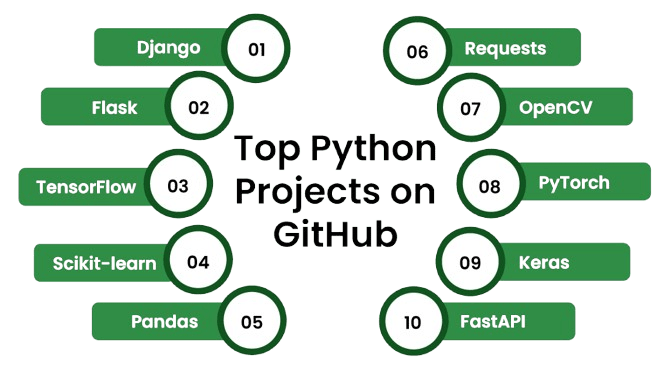
Game Development Projects
Game development projects are an engaging way to combine programming, creativity, and problem-solving skills, offering a hands-on approach to learning software development. Starting with simple 2D games like Tic-Tac-Toe, Snake, or Pong allows beginners to understand game loops, user input, and collision detection using tools like Pygame or Unity. As skills advance, more complex projects such as platformers, puzzle games, or RPGs challenge developers to implement advanced mechanics like AI for non-playable characters, physics-based interactions, and inventory systems. Multiplayer games introduce concepts of networking, real-time data handling, and server-client architecture. Game development also involves designing intuitive user interfaces, integrating audio-visual assets, and optimizing performance, providing a comprehensive development experience. Whether building a casual mobile game or a strategic simulation, these projects encourage experimentation and innovation while reinforcing core programming concepts, which can be valuable for understanding the roles and skills of Different Types of Analysts They also offer a portfolio-worthy way to showcase technical and design abilities, which can be valuable for careers in software engineering, interactive media, or game design. Through game development, learners not only improve their coding proficiency but also gain insight into storytelling, user experience, and the complexities of real-time application development, making it a rewarding and multidimensional area of project-based learning.
APIs and Integration Projects
APIs and integration projects are essential for understanding how different software systems communicate and work together to deliver seamless functionality. These projects involve using Application Programming Interfaces (APIs) to connect with external services or data sources, enabling developers to enhance their applications without building everything from scratch.A great starting point is creating a weather dashboard using a public weather API, where users can input a city and receive real-time weather updates, a project that can be showcased when you’ve built a data scientist resume. Another popular project is integrating a payment gateway like Stripe or PayPal into an e-commerce website, allowing for secure and smooth online transactions. You can also build a travel planner app that pulls flight, hotel, and location data from multiple APIs, or a social media aggregator that combines feeds from Twitter, Instagram, and Facebook into a single interface. API projects teach important skills such as handling JSON data, managing API keys, working with HTTP methods (GET, POST), and dealing with authentication protocols like OAuth. They also demonstrate how to handle rate limits, errors, and data parsing efficiently. Ultimately, APIs and integration projects are vital for building modern, data-driven applications and preparing developers to work in real-world environments where software systems must interact and share information seamlessly.
Best Practices for Projects
When working on Python projects, following best practices is critical to maximize your learning and make your work professional. Here are some key best practices:
- Write clean, readable code: Follow PEP8 guidelines, use meaningful variable names, and add comments where necessary.
- Use version control: Always manage your code with Git and GitHub or GitLab.
- Structure projects properly: Organize your files and directories logically, using modular programming techniques.
- Documentation: Include README files, usage instructions, and dependencies for every project.
- Testing: Write unit tests to ensure that your code behaves as expected, especially for larger projects.
- Deployment: Learn how to deploy your applications using services like Heroku, AWS, or Docker for cloud-based or production-level delivery.
Following these practices will make your projects not only learning experiences but also showcase-ready for interviews, GitHub profiles, or freelance opportunities.
Conclusion
Python projects are a powerful way to master the language while developing practical skills that are highly valued by employers. Whether your interest lies in web scraping, data analysis, machine learning, automation, web development, GUI applications, game development, or API integration, hands-on projects accelerate your learning by turning theory into a real-world application. Working on diverse projects helps you grasp complex concepts more effectively and enhances your problem-solving and debugging abilities. These experiences also build a strong portfolio, showcasing your skills to potential employers and boosting your confidence as a developer, especially when combined with Data Science Training Starting with small, manageable projects allows you to gradually build up to more complex ones, reinforcing your learning through consistent practice. Documenting your progress, following best practices, and reflecting on challenges and solutions are crucial habits that promote continuous improvement. Project-based learning not only strengthens your technical abilities but also prepares you for real-world software development environments where practical application of skills is key. By immersing yourself in Python projects and tackling varied challenges, you not only gain proficiency in the language but also position yourself as a capable and adaptable programmer ready to contribute effectively to any development team or tech-driven organization.


